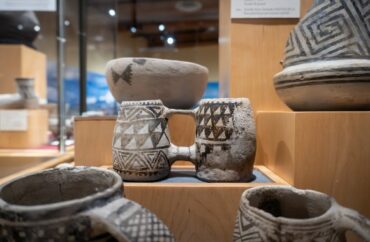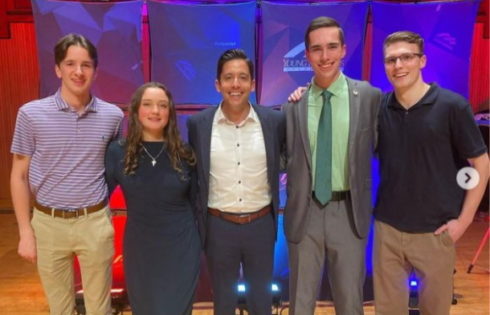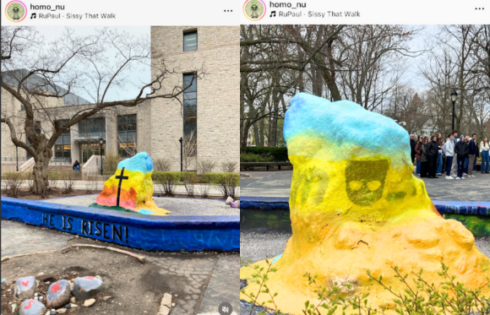
This won’t ‘end with repatriating materials — censorship of images and data is already underway,’ scholar says
Southern Illinois University at Carbondale recently created a new staff position to “repatriate” Native American artifacts in its museum collection, prompting concerns from another university scholar.
Elizabeth Weiss, professor emeritus of anthropology at San Jose State University, believes these new positions at Southern Illinois and other higher education institutions will ruin historical research.
“And, they will not end with repatriating materials — censorship of images and data is already underway,” Weiss told The College Fix in a recent email.
At Southern Illinois University, its Board of Trustees approved a $75,000 salary for the new Native American Graves Protection and Repatriation Act program director position during a September meeting.
Carol Samarah, who was hired to fill the role, will “collaborate across SIU campuses to ensure compliance” with the federal law, according to the job description. Samarah did not respond to an email last week asking for more details about her work.
Anthropology Professor Mark Wagner told The Fix the university created the position, which is permanent, to comply with recent regulatory updates to the law. Funding for the position came from the state, not tuition dollars, he said.
The law “requires institutions, including museums and universities, to protect and safely return Native American human remains and cultural items, including funerary objects, sacred objects and objects of cultural patrimony,” Wagner said in an email last week.
“Failure to be compliant with NAGPRA can result in severe fines and penalties,” he said.
Wagner, who was involved in the hiring process, said they wanted someone with “a thorough knowledge of NAGPRA regulations as well as the ability to work with and gain the trust of tribal representatives.”
Earlier this year, several California universities created similar positions to facilitate the “repatriation” of Native American objects in their museums, The Fix previously reported.
MORE: California universities are hiring staff to give back Native American artifacts
These additions have sparked criticism from Weiss, a historian and author. She predicted that “more scientific and teaching collections will be lost” as a result.
“University positions, such as repatriation coordinators, NAGPRA (Native American Graves Protection and Repatriation Act) coordinators, or tribal liaisons, are all still growing and are likely here for the long run,” she told The Fix.
“And, the decisions and logistics to practically throw away these collections by giving them to tribes will be made by such hires,” she said.
Eventually, “when the science collapses, NAGPRA coordinators and others hired in repatriation roles will claim that they were just following orders,” Weiss said. “However, they were leading the way; allowing for greater and greater destruction of collections, ranging from human remains to natural history collections containing plant and animal materials.“
She said she also believes these new positions “are a departure from the original intent of NAGPRA,” which was meant to return human remains and sacred objects to Native American descendants.
Now, museums also are returning “fine arts, replicas, and research collections from coprolites (fossilized feces) to nonhuman animal remains,” she said.
However, Wagner, who serves as director of SIU Carbondale’s Center for Archaeological Investigations, said his institution “fully supports” the repatriation efforts.
“We consult with descendant communities to repatriate ancestral human remains and sacred objects belonging to those communities that are currently curated by the university in accordance with federal law,” Wagner told The Fix.
“Consulting with sovereign Native American tribes regarding the repatriation of human remains and cultural objects is a complex process that involves building relationships and trust between university officials and tribal governments representing Native American peoples,” Wagner said.
But to Weiss, the new position at SIU Carbondale exemplifies a wider problem.
“Already, repatriation of non-Native American materials is occurring, such as the repatriation of a 16th century Spanish breastplate and Ming dynasty vases to the Graton Rancheria tribe from UC Berkeley’s Phoebe Hearst Museum,” she told The Fix. “Materials that can be used in forensic training are also at risk for being repatriated.”
She gave the example of “an osteology instructor in California [who] was denied access to animal bones from a 19th-century hospital dump because the tribes hadn’t been consulted yet — these types of material are essential to learning how to identify human remains from nonhuman remains.”
The past two years have been “terrible … for the preservation of archaeological collections” in higher education museums, Weiss told The Fix.
“Unless there is a drastic change, such as a removal of all NAGPRA regulatory changes that were passed by bureaucrats, whole sciences will be buried under the guise of helping Native American tribes,” she said.
Weiss, author of the book “On the Warpath: My Battles with Indians, Pretendians, and Woke Warriors,” has been speaking out against the repatriation law for years.
Last year, she and San Jose State settled a lawsuit after Weiss alleged university leaders publicly “disparag[ed]” her and “severely restrict[ed] her ability to conduct research,” The Fix reported at the time.
MORE: UMinn may require researchers to get permission from indigenous tribes
IMAGE: EWY Media/Shutterstock
Like The College Fix on Facebook / Follow us on Twitter






Please join the conversation about our stories on Facebook, Twitter, Instagram, Reddit, MeWe, Rumble, Gab, Minds and Gettr.